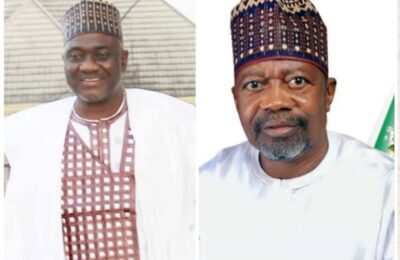The clamour for former President Goodluck Jonathan to return in 2027 has stirred nostalgia among sections of the populace who recall with longing the days when the naira traded below ₦200 to a dollar, rice sold under ₦10,000, fuel stood at ₦87 per litre, and Nigeria still carried a semblance of unity. They argue that Jonathan was the only leader who, in conceding defeat in 2015, reminded the world that his ambition was not worth the blood of any Nigerian. They say he lost an election but won the people. Yet the burden of current realities must not be sacrificed on the altar of sentimentality.
In Nigeria’s traditional councils, elders often remind us that “the tortoise does not run back to the farmland where his shell was once broken.” But today, popular voices want Jonathan pushed once more into the arena where wolves sharpen their teeth on the bones of the poor. His admirers insist he is too good a man and his life too precious to be offered again to the cannibalism of Nigerian politics, where terrorists and political profiteers feed fat on the dying masses. To return him now is like tying a white ram in the middle of a forest of hyenas—its purity admired, but its survival doubtful.
Even those who wish him well concede that if Jonathan must ever contest again, it cannot be in this season of entitlement politics, the so-called “emi lokun” era that has turned power into inheritance. In a system where an ancient political godfather like Bola Tinubu sits as if he were the ancient of days, governing with nothing to lose even if tomorrow’s generations are perishing, Jonathan’s decency would only be swallowed in the quicksand of entitlement and ruthless self-preservation.
The Nigeria of 2027 is not the Nigeria of 2015. The party platform that once carried him is no longer the PDP of his memory; it has splintered into factions of merchants and mercenaries. As an elder of the Arewa Consultative Forum noted, “The palace Jonathan once knew has new chiefs, new dancers, and drums that beat to strange rhythms.” Senator Shehu Sani has also been blunt: Jonathan would find himself colliding with a harsher, more vicious order, one where moral capital is no longer enough to survive.
It is tempting to believe his return would bring back cheaper rice, a stronger naira, or relative calm. But such hope is an illusion. His presidency was not without blemish; billions of oil dollars flowed through his years with little diversification of the economy, and Boko Haram ravaged the Northeast with ferocity. In the words of an African proverb, “A river that failed to quench thirst yesterday cannot turn into palm wine today.”
The call for Jonathan is less strategy than desperation—a wounded people reaching for the most humane memory in their past. But as Igbo elders often warn, “When the roof is on fire, you do not fetch the same water that failed to quench it before.” Nigeria must look beyond nostalgia. It needs leaders with the energy and vision to confront corruption, insecurity, and poverty with fresh ideas and unflinching courage.
Jonathan’s greatest legacy remains his peaceful concession in 2015, an act that placed him above the fray and preserved his dignity as a statesman. To drag him back into the coliseum of vultures risks staining that legacy with blood and mud. His role is better served as a mentor, an elder, and a moral compass for the younger generation, rather than as a sacrificial candidate in a theatre that now rewards ruthlessness more than righteousness.
Nigeria does not need Goodluck Jonathan in 2027. What Nigeria needs is not a return to yesterday’s shadows but the courage to break new ground. The future cannot be redeemed by recycling the past; it demands leaders who will plant new trees instead of mourning old stumps. Anything less is handing tomorrow to cannibals while the nation starves.
– Inah Boniface Ocholi writes from Ayah – Igalamela/Odolu LGA, Kogi state.
08152094428 (SMS Only)




